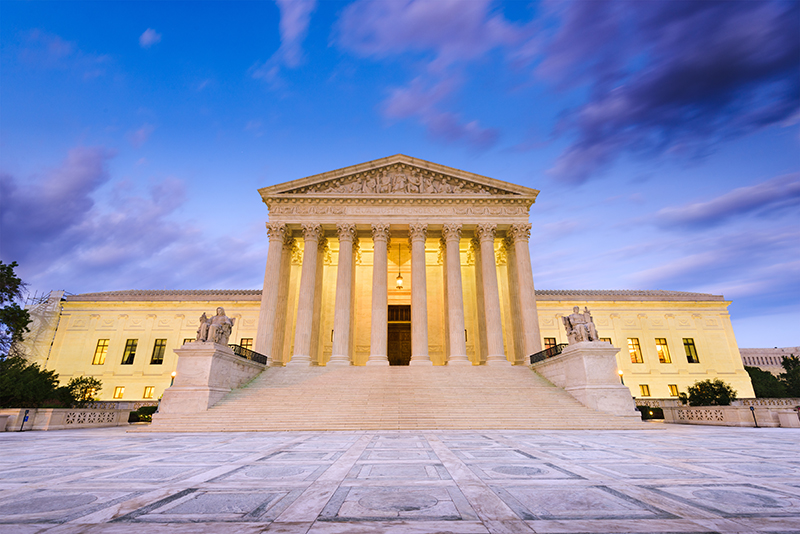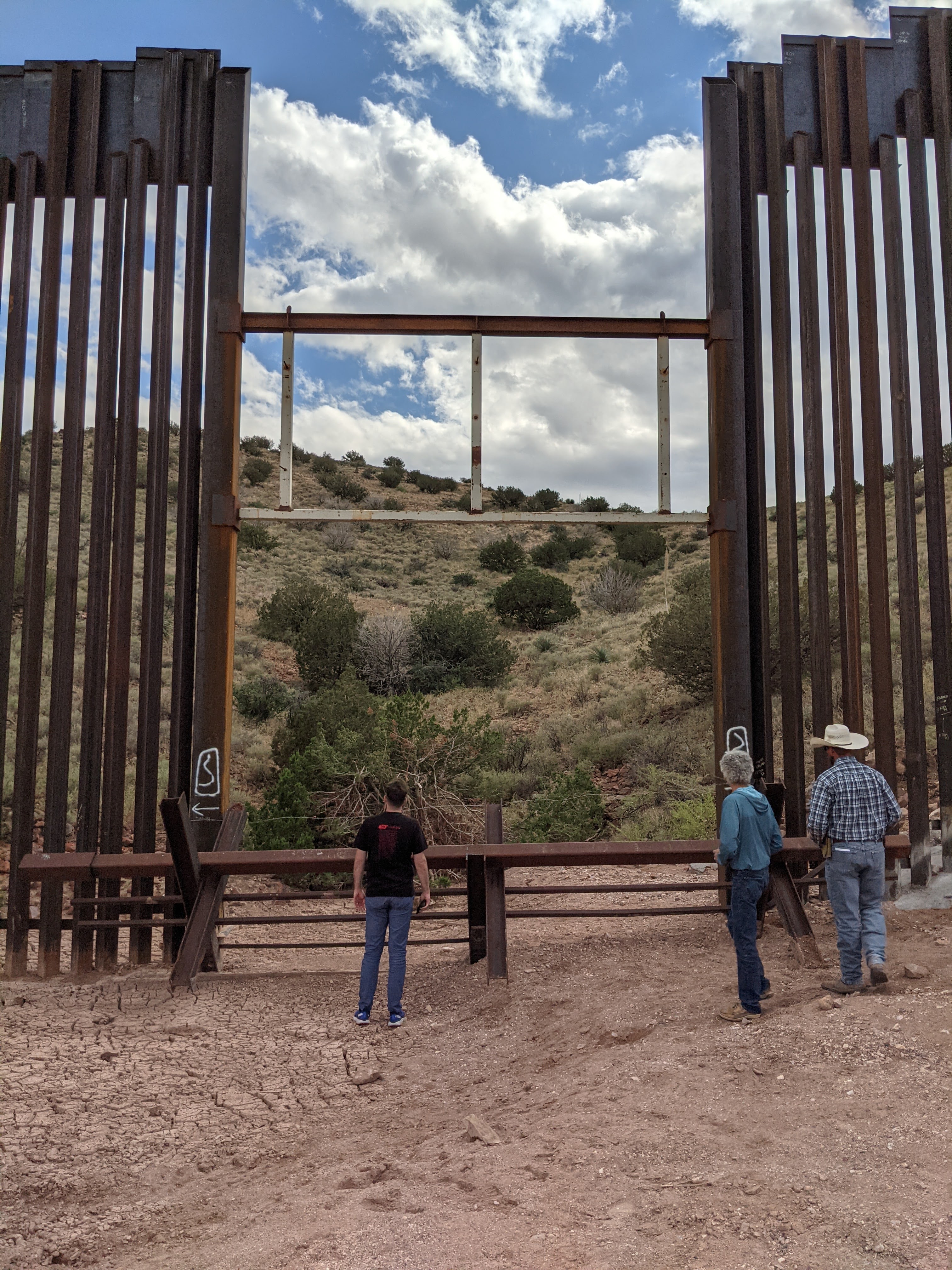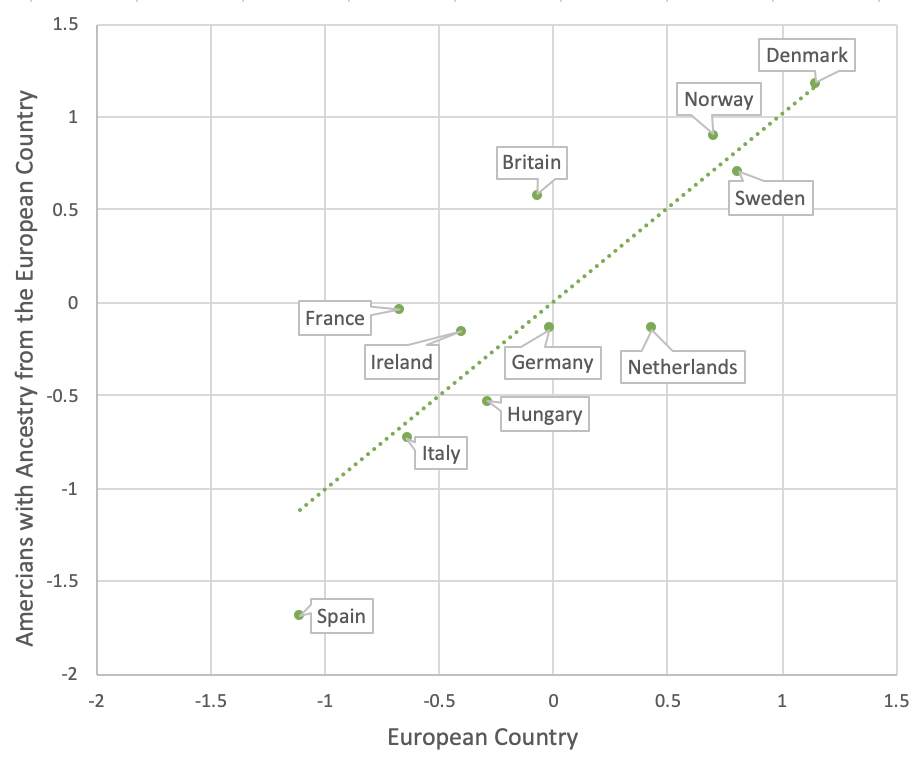SCOTUS to Review Guatemalan Protection Claim
On October 3, the Supreme Court granted certiorari in Santos-Zacaria v. Garland, an appeal from a Fifth Circuit decision denying withholding of protection to a Guatemalan national who alleges she is a transgender woman who will be subject to persecution and torture if she is returned home. It should not be a close case, but I would lose money betting on High Court outcomes. There is a lot riding on what is, basically, a factual and evidentiary dispute.
The Facts. According to the government’s brief, the alien entered the United States illegally in 2008 and was removed. Thereafter, she again entered illegally and the earlier removal order against her was reinstated, and she was again removed, only to reenter a third time in 2018.
When DHS attempted to once more reinstate her removal order, Santos-Zacaria sought statutory withholding of removal. Statutory withholding is a form of protection akin to asylum, only with a higher burden of proof (requiring the alien to show that it is more likely than not that she would be persecuted compared to a “well-founded fear of persecution” showing for asylum) and fewer benefits.
Why not asylum? Because aliens subject to reinstatement are barred from that protection, and thus statutory withholding and withholding under the Convention Against Torture (CAT) are the only forms of relief from removal such aliens may seek.
Her claim is based on her asserted membership in the transgender and gay communities, which can be a recognized “particular social group” for withholding. Specifically, Santos-Zacaria alleged she had been raped by a neighbor in Guatemala when she was 12 because of her gender identity, and that the neighbor had threatened to kill her if she didn’t leave. She asserted that she didn’t go to the police about the assault because others in her community told her that the police didn’t protect “gay people”.
She left Guatemala at the age of 13 or 14 for Mexico because her father was ill and her mother couldn’t support either her or her siblings. When she was removed from the United States, she contends, she remained only briefly because people “made fun of her for being gay”.
Nonetheless, she made brief return trips to Guatemala in 2014, 2015, and 2018. She was not harmed during those visits, she alleged, because she would “get inside the house and hide”.
Before the Immigration Judge. During cross-examination before the immigration court on her withholding claim, Santos-Zacaria admitted that she could now register “as a woman” in Guatemala if she wanted to identify as such but asserted that she would still face persecution and torture.
The most significant evidence in the case for purposes of the Supreme Court’s review was the following exchange between Santos-Zacaria and the ICE attorney:
[ICE]: And did you ever try to move to a city [in Guatemala] that was more open and free than the one that you grew up in as a child?
[Santos-Zacaria:] But I don’t know where to go down there. I don’t know who would — kind — what kind of people I’m going to get there to live there.
[ICE:] But if you know of cities that are open to gay and lesbian and transgender lifestyles you would rather move to those cities than the one you lived in[,] correct?
[Santos-Zacaria:] Yes, probably there is another place where I can live down there but I don’t but I try to stay here to get this protection because besides that I have a brother living here so I’m trying to have him help me.
The immigration judge denied her application, finding (among other things): there was no evidence that the rape was due to her membership in a particular social group; that she failed to prove that she would be singled out for persecution if she were to return; and that she failed to show “there is a pattern or practice of persecution of an identifiable group” in Guatemala to which she belonged.
According to DOJ, the immigration judge explained that, while Santos-Zacaria had “testified that she would be persecuted because she is gay and transgender, that evidence is ‘speculative’”, and she “had ‘not shown that the Guatemalan government is unwilling or unable to protect’ her”.
The Board of Immigration Appeals Decision. Santos-Zacaria appealed the immigration judge’s decision to the Board of Immigration Appeals (BIA), which affirmed the immigration court’s denial of protection, but disagreed with the court’s conclusion that the alien had not been subject to past persecution.
By law, Santos-Zacaria was thus entitled to a presumption of future persecution (as the BIA recognized), but it concluded that the time that had passed since the alleged rape, the alien’s voluntary returns to Guatemala, and her testimony that she could change her gender in that community and relocate safely (based on the testimony excerpt above) had rebutted that presumption.
Section 240(c)(6)(A) of the Immigration and Nationality Act (INA) would have allowed Santos-Zacaria to ask the BIA within 30 days of that decision to reconsider its conclusion that the presumption of future persecution in her case had been rebutted, but she instead filed a petition for review with the Fifth Circuit.
Fifth Circuit’s Decision. A three-judge panel of the Fifth Circuit considered that petition.
Before the circuit court, Santos-Zacaria (for the first time) argued that the BIA had engaged in impermissible factfinding in concluding she would not be subject to future persecution, asserting that this factual determination should have been made on a remand by the BIA to the immigration court.
She also asserted separately that the record did not support the conclusion that the presumption of persecution in her case had been rebutted by the evidence of record.
Two of the three judges on that panel rejected the first argument, finding that she could have asked the BIA to reconsider its conclusion with respect to the rebuttal evidence, but had failed to do so. That failure to exhaust her remedies, the judges concluded, deprived the circuit court of jurisdiction over the question.
That conclusion was premised on section 242(d)(1) of the INA, which limits circuit court review of aliens’ claims. It provides that a circuit court “may review a final order of removal only if- (1) the alien has exhausted all administrative remedies available to the alien as of right”. Reconsideration of the rebuttal evidence is an administrative remedy that Santos-Zacaria could have sought to address her claims.
Those two circuit judges also rejected her second argument, that the BIA’s conclusion that ICE had rebutted the presumption of future persecution in her case was not supported by “substantial evidence”. In rejecting that argument, the judges relied on the testimony excerpted above.
Judge Stephen Higginson, in dissent, found that Santos-Zacaria had exhausted her remedies when, in her appeal to the BIA, she requested additional factfinding by the immigration court in lieu of reversal of the immigration judge’s findings. He also disagreed with his fellow judges’ conclusion that substantial evidence supported the BIA’s rebuttal finding.
Questions Before the Supreme Court. The biggest question before the Supreme Court is whether section 242(d)(1) of the INA is a jurisdictional bar to arguments that were not raised administratively below.
Normally under immigration law, Article III courts only consider whether legal arguments advanced below were correctly decided, and eight circuits have held that a failure to exhaust administrative remedies is a jurisdictional bar to their review. Two others, however, have held it can be waived, setting up a “circuit-split” that invites High Court review.
The second question is whether aliens must ask the BIA to reopen proceedings or reconsider a disputed conclusion or finding before seeking Article III review of that conclusion or finding. Three circuits have held that they must, while two others have found that because the BIA has discretion to deny a request for reconsideration, filing such a motion is not necessary to vest the circuit court with jurisdiction.
As a legal and practical matter, aliens who dispute determinations of the BIA — particularly ones that contradict findings of the immigration court below — should ask the BIA to reconsider that finding. Article III courts are limited in their authority to make factual determinations, which in essence is what Santos-Zacaria is asking the Supreme Court to do here.
In the best-case scenario from her perspective, the justices will kick the matter back to the BIA, which will remand it to the immigration judge to consider additional evidence.
If the Court holds that aliens don’t have to exhaust all their administrative remedies — including by seeking reconsideration — before heading to federal court, many if not most removal cases will go on forever through endless appeals and remands. There is a lot riding in this case on what is, basically, a dispute about testimony and facts.






